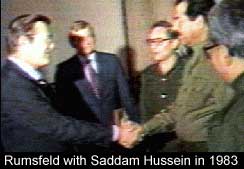 JUST IN TIME FOR THE SCHOOL YEAR — ARTHUR MAGAZINE LAUNCHES NEW ALBUM TO BENEFIT COUNTER-MILITARY RECRUITING CAMPAIGNS
JUST IN TIME FOR THE SCHOOL YEAR — ARTHUR MAGAZINE LAUNCHES NEW ALBUM TO BENEFIT COUNTER-MILITARY RECRUITING CAMPAIGNS
“Let’s help give youth a balanced view of what military service REALLY means,” says Arthur editor Jay Babcock.
With wars raging across the Middle East and prospects for peace dimming, the youth of America have wised up and are starting to stay away from military recruiters in droves. Said recruiters have retaliated with aggressive—and often criminal—tactics.
An eye-opening study issued this August by the Government Accountability Office reported that “allegations and service-identified incidents of recruiter wrongdoing” increased almost 50 percent between 2004 and 2005. Criminal violations more than doubled over the same period of time. Increasingly common tactics used by the nation’s 20,000 military recruiters range from lying about the financial benefits of service to threatening high school students with arrest if they back out of an enlistment process already underway. Military recruiters have also been assisting recruits in the falsification of documents to cover up conditions like autism, mental illness and serious drug problems that would bar them from service if reported. [See below for more information.]
Musician Josephine Foster is joining forces with Bastet, the publishing imprint of Arthur magazine, to help give America’s kids and parents the tools they need to protect them from the depredations of the nation’s many unscrupulous military recruiters.
On Tuesday, August 29, Arthur magazine will release So Much Fire to Roast Human Flesh, an 18-track, multi-artist compilation CD curated by Foster featuring exclusive contributions from some of the more outspoken members of the nation’s burgeoning psychedelic folk scene, including Devendra Banhart, Feathers, David Pajo and members of Espers and Spires That in the Sunset Rise. Musicians from earlier generations of the underground, such as Michael Hurley, Kath Bloom and Angels of Light, are also present.
All profits from sales of So Much Fire… will be distributed to specific counter-military recruitment and pacifist organizations and programs who effectively advise high school students and other Americans at risk of being taken advantage of by the military’s recruiters and omnipresent big-budget marketing campaigns.
“All of the musicians represented on So Much Fire… are American citizens,” said Josephine Foster. “Our voices join with many others across this land that freely question and openly oppose war. Hopefully we will raise a good sum of money to help fund the educational pacifist tasks these organizations do. They are dedicated to creating a positive counter to the rising tides of the war being waged. We hope to assist them in their efforts promoting peace and non-militarism in the United States.”
“I am deeply grateful to everyone involved in this gesture; from every musician, to Fred Tomaselli for use of his incredible painting as the cover art, to Jay Babcock and Laris Kreslins at Arthur magazine who so enthusiastically took up this idea and worked to realize it. In the end, all of the labor was donated, including the manufacturing.”
Said Arthur magazine editor Jay Babcock, “We are putting what little money we have where our mouth is. We hope that other people of conscience will do the same.”
The album’s title is taken from a line by the poet Apollinaire, who died from wounds he sustained while serving in World War I.
So Much Fire… is now available for order from Arthurmag.com and, starting August 29, from record stores across North America.
Track listing:
THE CHERRY BLOSSOMS – ‘Dragonfly’ (live)
FEATHERS – ‘Dust’
MICHAEL HURLEY – ‘A Little Bit of Love for You’
MEG BAIRD – ‘Western Red Lily (Nunavut Diamond Dream)’
ANDREW BAR – ‘Don’t Trust That Man’
GOATGIRL – ‘President Combed His Hair’
DEVENDRA BANHART – ‘I Know Some Souls’ (demo)
KATH BLOOM – ‘Baby Let It Come Down On Me’
CHARLIE NOTHING – ‘Fuck You and Your Stupid Wars’
DIANE CLUCK – ‘A Phoenix and Doves’
JOHN ALLINGHAM & ANN TILEY – ‘Big War’
JOSEPHINE FOSTER – ‘Would You Pave the Road?’
ANGELS OF LIGHT – ‘Destroyer’
RACHEL MASON – ‘The War Clerk’s Lament’
PAJO – ‘War Is Dead’
MVEE – ‘Powderfinger’
KATHLEEN BAIRD – ‘Prayer for Silence’
LAY ALL OVER IT – ‘A Place’
Read the GAO report, “Military Recruiting: DOD and Services Need Better
Data to Enhance Visibility over Recruiter Irregularities” here.
High school students, their parents and friends can learn more about
their rights when confronted by recruiters here.

 On Tuesday, Secretary of Defense Donald Rumsfeld said administration critics suffered from “moral or intellectual confusion.” American TV commentator
On Tuesday, Secretary of Defense Donald Rumsfeld said administration critics suffered from “moral or intellectual confusion.” American TV commentator